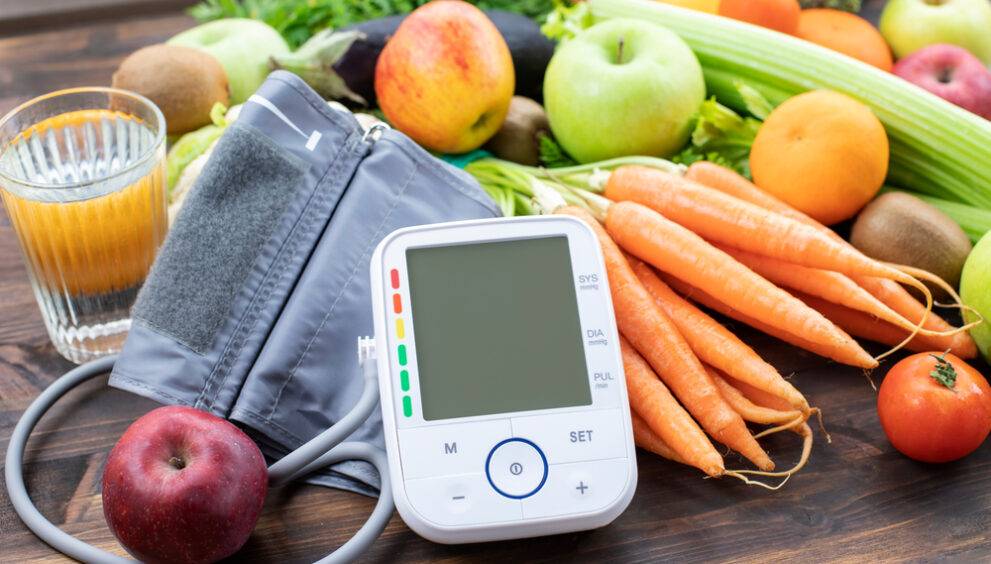Natural Tips for High Blood Pressure: Supplements to Avoid

If you have high blood pressure, you’ve probably been told to eat healthier, exercise, and maybe even take medication. But what about supplements? While some can support heart health, others may raise blood pressure or interfere with medications.
Many people assume that vitamins and herbal remedies are always beneficial, but that’s not the case—some can make hypertension worse. In this guide, we’ll explore natural ways to manage high blood pressure and highlight the vitamins you should skip if you have high blood pressure to avoid potential risks.
Let’s dive into the best lifestyle choices, helpful supplements, and those that could be harmful.
What Natural Approaches Help Control Blood Pressure?
Before considering supplements, let’s start with lifestyle changes that have been proven to support healthy blood pressure levels. Small, consistent adjustments can make a big difference.
Eat for Your Heart
What you put on your plate directly affects your blood pressure. A diet rich in whole foods can help regulate it naturally:
- Increase potassium intake – Foods like bananas, spinach, and sweet potatoes help balance sodium levels.
- Cut back on salt – Processed and fast foods often contain excessive sodium, which can raise blood pressure.
- Eat more fiber – Whole grains, legumes, and vegetables help improve heart health.
- Focus on healthy fats – Avocados, nuts, and olive oil provide beneficial fats that support circulation.
Stay Active—Even in Small Ways
Exercise doesn’t have to be intense. Simple activities like brisk walking, swimming, and yoga can improve circulation and lower stress levels, both of which support healthy blood pressure.
Manage Stress and Sleep Well
Chronic stress contributes to hypertension. Techniques like meditation, deep breathing, and mindfulness can help. Additionally, poor sleep can increase blood pressure over time, so getting at least seven hours of rest is essential.
Lifestyle changes are the foundation of good blood pressure management. But what about supplements? Some can help, while others should be avoided.
Can Supplements Help Lower Blood Pressure?
You might be wondering—are there any supplements that support healthy blood pressure? The answer is yes, but only certain ones have reliable evidence backing them.
Here are some that may help:
Magnesium
Magnesium helps relax blood vessels, making it easier for blood to flow. Many people don’t get enough from their diet, so supplementation may be beneficial.
Potassium
This essential mineral works against sodium to keep blood pressure in check. While food sources are best, some people may need supplements—though only under a doctor’s supervision.
Coenzyme Q10 (CoQ10)
CoQ10 supports heart health and may slightly lower blood pressure by improving blood vessel function.
Omega-3 Fatty Acids
Found in fish oil, omega-3s have anti-inflammatory properties and may help reduce blood pressure levels over time.
While these supplements can be helpful, others may do more harm than good.
The Supplements You Should Avoid If You Have High Blood Pressure
Not all supplements are created equal. Some may interfere with blood pressure regulation or medication, leading to dangerous spikes or unwanted side effects.
Licorice Root
While licorice root is sometimes used for digestive health, it contains glycyrrhizin, which can raise blood pressure by increasing sodium retention.
Ephedra and Other Stimulants
Ephedra-containing supplements, often marketed for weight loss or energy, can cause dangerous increases in heart rate and blood pressure. Many countries have banned ephedra, but similar stimulants still exist in some herbal products.
High-Dose Vitamin E
Vitamin E has some health benefits, but taking it in high doses may interfere with blood-thinning medications and increase the risk of blood pressure fluctuations.
St. John’s Wort
Often taken for mood support, St. John’s Wort can interact with blood pressure medications, making them less effective or causing unexpected spikes.
Energy-Boosting Supplements
Pre-workout powders and fat burners often contain caffeine and other stimulants, which can temporarily raise blood pressure and put stress on the heart.
If you’re taking any of these supplements, it’s best to consult your doctor before continuing. But what about multivitamins? Are they safe?
What About Multivitamins? Are They Safe?
Many people take multivitamins daily, assuming they provide only benefits. But for those with high blood pressure, certain ingredients in these blends can be problematic.
Excess Calcium
While calcium is essential for bone health, excessive amounts can contribute to arterial stiffness, potentially raising blood pressure over time.
Iron Supplements (When Not Needed)
If you have normal iron levels, taking extra iron may lead to oxidative stress, which could negatively impact heart health.
Hidden Sodium in Some Formulations
Some effervescent (fizzy) vitamins contain sodium bicarbonate, which may add to your daily sodium intake.
How to Choose a Safe Multivitamin
- Look for one designed for heart health, avoiding high doses of iron and calcium.
- Choose brands with transparent labeling and third-party testing.
- If in doubt, ask your doctor for guidance.
Taking the right vitamins is just one piece of the puzzle—so how can you make smart choices overall?
How to Make Smart Choices About Supplements
The supplement industry is vast, and not all products are safe or effective. Here’s how to make better choices:
Read Labels Carefully
- Avoid proprietary blends that don’t list exact ingredient amounts.
- Watch for stimulants, added sodium, or hidden sugars.
Stick to Trusted Brands
- Choose third-party-tested supplements to ensure purity and accuracy.
- Look for certifications from organizations like USP or NSF.
Talk to Your Doctor
- Even natural supplements can interact with medications.
- Your doctor can recommend safe, effective options based on your health history.
While supplements can play a role, they should never replace a healthy lifestyle. Managing high blood pressure requires a combination of good nutrition, exercise, and medical guidance.
You may explore this too: What are the Key Elements of Patient-Centric Clinical Trials?
Conclusion
Managing high blood pressure naturally involves a mix of lifestyle changes, safe supplementation, and avoiding risky vitamins. Here’s a quick recap:
Do: Eat a heart-healthy diet, stay active, manage stress, and get enough sleep.
Consider: Supplements like magnesium, potassium, CoQ10, and omega-3s—under medical guidance.
Avoid: Licorice root, ephedra, high-dose vitamin E, St. John’s Wort, and stimulant-based energy supplements.
Be cautious with: Multivitamins that contain excessive calcium, iron, or hidden sodium.
Before adding or removing any supplement, talk to your doctor. And if you’re interested in exploring new treatment options, find High Blood Pressure clinical trials near you to see what’s available.
Taking care of your heart starts with informed choices—so now that you know what to take and what to skip, you’re in control of your health journey.


 English
English 





















































































































































































































































































































































































































































































































































































































































































































































































































































































































































































































































































































































































































































































































































































































































































































































































































































































































































































































































































































































































































































































































































































































































































































































































































































































































































































































































































